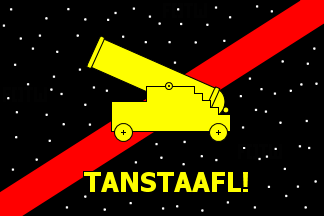A full spoken language, complete with standardized vocabulary and grammar, took humanity a very long time to develop. And how much more so for a written language? Literacy was, for thousands of years, the privilege of the aristocracy. It required not only the invention and maintenance of a language but also the time and resources to learn it. While the invention of moveable type printers made book production easier, books did not become economically viable for most people until the industrial revolution.
Books are no longer rare and precious heirloom tomes. They are mass produced pulp with glued bindings. Newspapers are going out of fashion as we shift our preferences to the internet. Even this blog is brought to you with ease, free of charge for me to publish and for you to read.
But I am crazy about books. I don't just mean the worlds they hold. I love the tactile sensation, the musky library smell of them, the sound of turning a page, the way book covers look like inviting secrets. I own several hundred books. At one point, they began to take over my room. What looked like a dishevled mess was in fact genre-specific stacks and piles of books that could not find homes on my bookcases. Eventually, my mother bought us four more bookcases and we turned a portion of our spare room into a library. While I have been in graduate school, I have added significantly to my collection despite my aversion to buying books for classes.
Libraries rank high on my list of civic altruism. Fire trucks and police and public water works are all great for survival, but a library is a gift to the souls of people. I love to wander through shelves of books. I peruse fiction stacks like book stores. It has been a disappointment to me how thin the U of Chicago library fiction sections are. So many of the books are ancient, falling apart, out-dated. The academic books outweigh these significantly. Don't point out that it is a university library. If they don't value fiction then they are missing something great. In fact, I think it says a lot about what is wrong with the University of Chicago that it's libraries contain more works about Kurt Vonnegut than by him - and there are not that many about him either. Secondary source favoritism.
Oh, but public libraries, how I love those! Any book has been held my myriads of others. Where did they read it and how did it affect them? I especially love the little notes scrawled on the sides of pages, underlining and question marks for words of unknown meaning. I miss those little cards that contained the names of previous borrowers. Although I always found it disappointing when a great book sat on shelves for months or even years before I rescued it again.
Inside the world of the Thursday Next novels, there are vast libraries, one for each language. You can open any book and enter into the story itself, you can watch and feel as a reader travels through the narrative - if you are not careful, you might even be read. While the characters keep their book identities, to a point, they can lead wildly different lives in the pages where they are absent or when the book is not being read. They agonize when they are not read and worry what the outside world thinks of them.
For them, time looks like it does to a Tralfalmadorian. All of it is always there, to be experienced over and over. While some parts may be painful and unpleasant, they can look forward to the other parts, the lovely parts. Unless the story is truly depressing and awful. But even then they would rather have the high emotions than the dullness of being unread.


